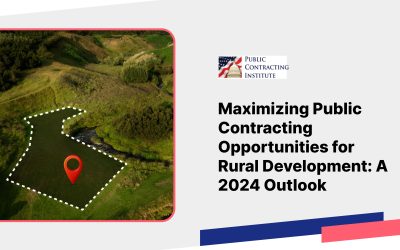This blog has frequently noted that in order to exercise an option properly to continue services, the Government must meet all contractual and Federal Acquisition Regulation (“FAR”) requirements, which generally require that the contracting officer provide (1) preliminary notice of intent to exercise an option 30 days before the contract expires; (2) written exercise of the option 15-30 days before the end of the contract or another number of days (specified in the contract); and (3) no change in contract requirements, work statements or prices for the option. See FAR 52.219-9, Option to Extend the Term of the Contract. If the government does not fully comply with these requirements, the exercise of the option is invalid, and the contractor may either cease performance, or seek an equitable adjustment for work during the period of contract exercise.
A recent Board case, Cooper/Ports America, LLC, ASBCA Nos. 61348 et. al, March 12, 2019, is interesting because it explains exactly how a contracting officer can meet the “intent” requirement effectively.
In Cooper/Ports, the government sought to extend a contract issued by the U.S. Transportation Command for stevedoring and related terminal services. In January, three months before the deadline for providing preliminary notice of intent to exercise the option, the contracting officer responded to a Cooper/Ports email (which inquired about how the government would “move forward” on the contract), by stating “The Government intends to exercise options at awarded rates [on two contracts-one of which was at issue here).” With this, the Government expects Cooper/Ports to continue performing per the terms and conditions of the contract.” The contracting officer issued a timely modification exercising the option, and stated that the January email was a preliminary notice of intent.
When Cooper/Ports filed claims alleging that the option exercise was ineffective, the contracting officer gave some unusual deposition testimony, stating:
Did I intend [for the January email] to be the preliminary notice?
Answer: No….Did I think that the January email constitutes preliminary notice of an intent to exercise an option on the contract?
Answer: Yes, because it specifically states that the government intends to exercise options at award rates.
The Board examined the contract, and concluded that the January email was a proper preliminary notice of intent because:
• It was timely
• It was unqualified, absolute, unconditional, unequivocal, unambiguous, positive, without reservation and met the terms and conditions of the option.
• In determining whether a preliminary notice of intent is proper, the Board looks at the substance of the notice, not its form.
• The January email did not impose any qualifications, conditions, or reservations upon the exercise of the option.
The Board noted that it looks at the plain meaning of the contract documents (not any extrinsic evidence, such as the CO’s deposition testimony). And, the January email completely met the requirements for preliminary notice in FAR 52.219-9, Option to Extend the Term of the Contract.
Takeaway: Informal (email) but specific “preliminary written notice of intent to extend a contract” within the time period specified in the contract is sufficient to meet the FAR requirements, provided the government does not vary the terms of the option or add qualifications, reservations, conditions or price changes.
For other helpful suggestions on government contracting, visit:
Richard D. Lieberman’s FAR Consulting at https://www.richarddlieberman.com/, and Mistakes in Government Contracting at https://richarddlieberman.wixsite.com/mistakes


